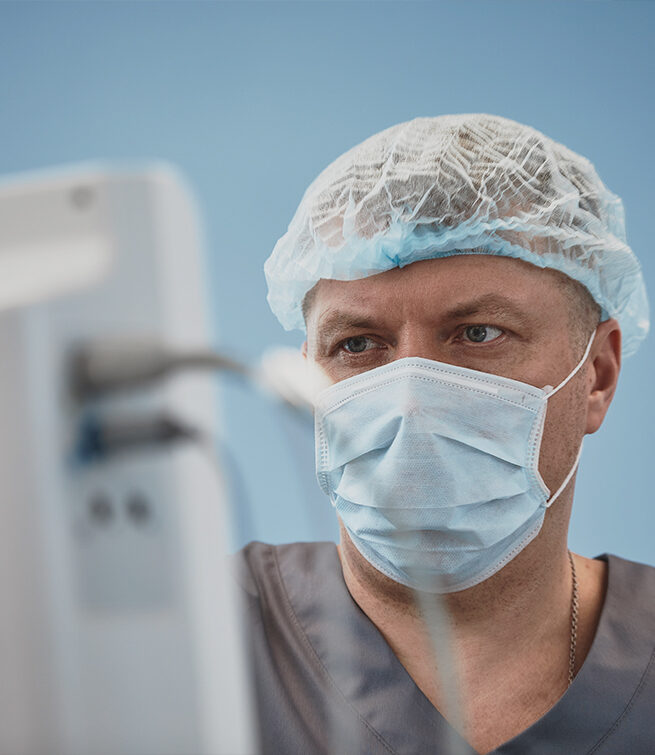Anaesthesia: rest assured!
You’ve made your decision! You’ve finally decided to move forward with the cosmetic surgery that you have been hesitating about for so long. But what was making you hesitate so much? Anaesthesia!
Does this sound like you? Know that you’re not alone. Many people are nervous about cosmetic surgery because it is preceded by general anaesthesia.
Therefore, we have written this article to inform you about the potential risks of anaesthesia. At the same time, we want to reassure you about this essential part of surgery and help you make an informed decision.
What is anaesthesia for?
Anaesthesia aims to numb all feelings of pain and prevent you from remembering the surgery. It also serves to improve the comfort of both the patient and the surgeon in order to optimize the procedure.
The anaesthetist’s job is to predict the amount of pain that the patient will experience after the operation in order to give them the right anaesthetics. The anaesthetist takes charge of the patient and ensures that they are comfortable before, during and after the surgical procedure.
There are also different types of anaesthesia.
Local vs. general anaesthesia: What’s the difference?
Local anaesthesia numbs a very specific area of the body. It is generally used for minor operations. It can be used for dental care, stitches, some biopsies or minor ablations.
The effects of local anaesthesia are designed to dissipate quickly. It can be administered topically (using a product applied to the skin) or with a needle.
Regional anaesthesia, like an epidural, numbs a large area of the body to prevent movement and pain.
General anaesthesia plunges the patient into a deep sleep. It is most commonly used for major surgery or operations that last a longer time, such as cosmetic surgery.
It can be administered intravenously or through inhalation. The effects and duration of anaesthesia vary based on how it is administered and the anaesthetic used. The type of surgery also has an impact on the types of anaesthetics chosen for your operation.
General anaesthesia can eliminate certain stress-related responses and thus provide the surgeon with the optimal conditions to perform the procedure. It allows the surgeon to place the patient in the best possible position. General anaesthesia requires the patient to be intubated to ensure consistent, regular breathing.
But anaesthesia is even more sophisticated than you may think. When the patient is under general anaesthesia, for example, the anaesthetist protects and stabilizes their vital functions.
Blood oxygen level, body temperature, renal functions, blood pressure, heart rate, breathing, etc.: vital signs will be monitored by the anaesthetist throughout the procedure. The anaesthetist also does a post-operation follow-up. Thus, their work continues even after the patient wakes up.
Are your fears justified?
During their preoperative consultations, many patients share their fears of anaesthesia.
Many patients say they are afraid of waking up during the operation. But don’t worry: these are powerful anaesthetics! They combine hypnotic drugs to make you lose consciousness, analgesics that block pain, and neuromuscular blocking agents to relax the muscles.
Others say they are afraid of not waking up after the operation. Anaesthesia is a very precise science. The anaesthetics that will be administered are tailored to you.
Before any surgery requiring general anaesthesia, the patient must meet with the anaesthetist. During that consultation, the anaesthetist will find out about your medical and family history, the treatments and medications you are taking, your use of alcohol, tobacco and natural products, your allergies, and any cardiac or respiratory problems. They will also assess the condition of your veins, the mobility of your neck and the opening of your mouth to ensure a successful intubation.
This consultation will ensure the success of the anaesthesia and your awakening after the operation.
Are you afraid of feeling pain during the operation? Since all your vital signs are under close scrutiny during the operation, it is completely impossible for you to feel pain during the surgical procedure. However, you may feel some afterwards. Nevertheless, all the anaesthetics you will receive also aim to reduce your post-surgery pain.
Risks of anaesthesia
To be sure, there are some risks related to anaesthesia. However, they are minor: nausea and vomiting, sore throat from the intubation, weakness, blurred vision, chills, headaches, itching or pain at the injection site, slight trouble concentrating or brief memory loss.
Remember that these risks are minor and temporary. There are other, more serious risks, but those are very rare. The anaesthetist can tell you about them before the day of your surgery.
Preparing for general anaesthesia
The preoperative consultation with the anaesthetist will inform you of the precautions you will need to take before your surgery. For example, some medications, such as anticoagulants, must not be taken. On the other hand, other medications will be recommended to you.
Also be careful of natural products such as garlic, ginkgo biloba, ginseng, ginger and St. John’s wort, which must be eliminated from your daily life prior to the operation.
If you are a smoker, the anaesthetist may give you some recommendations or ask you to stop smoking altogether eight weeks before the procedure in order to avoid respiratory complications.
You must be fasting for general anaesthesia. Since swallowing and coughing reflexes disappear when you are under the effects of general anaesthesia, the muscle between the intestine and the stomach relaxes completely. If you are not fasting, the food bolus may come back up, especially in a recumbent position.
To learn more about how to prepare for your surgery, we encourage you to visit this page. However, you can also pose all your questions to your surgeon, who will be happy to answer them during a consultation.
Back to blog
